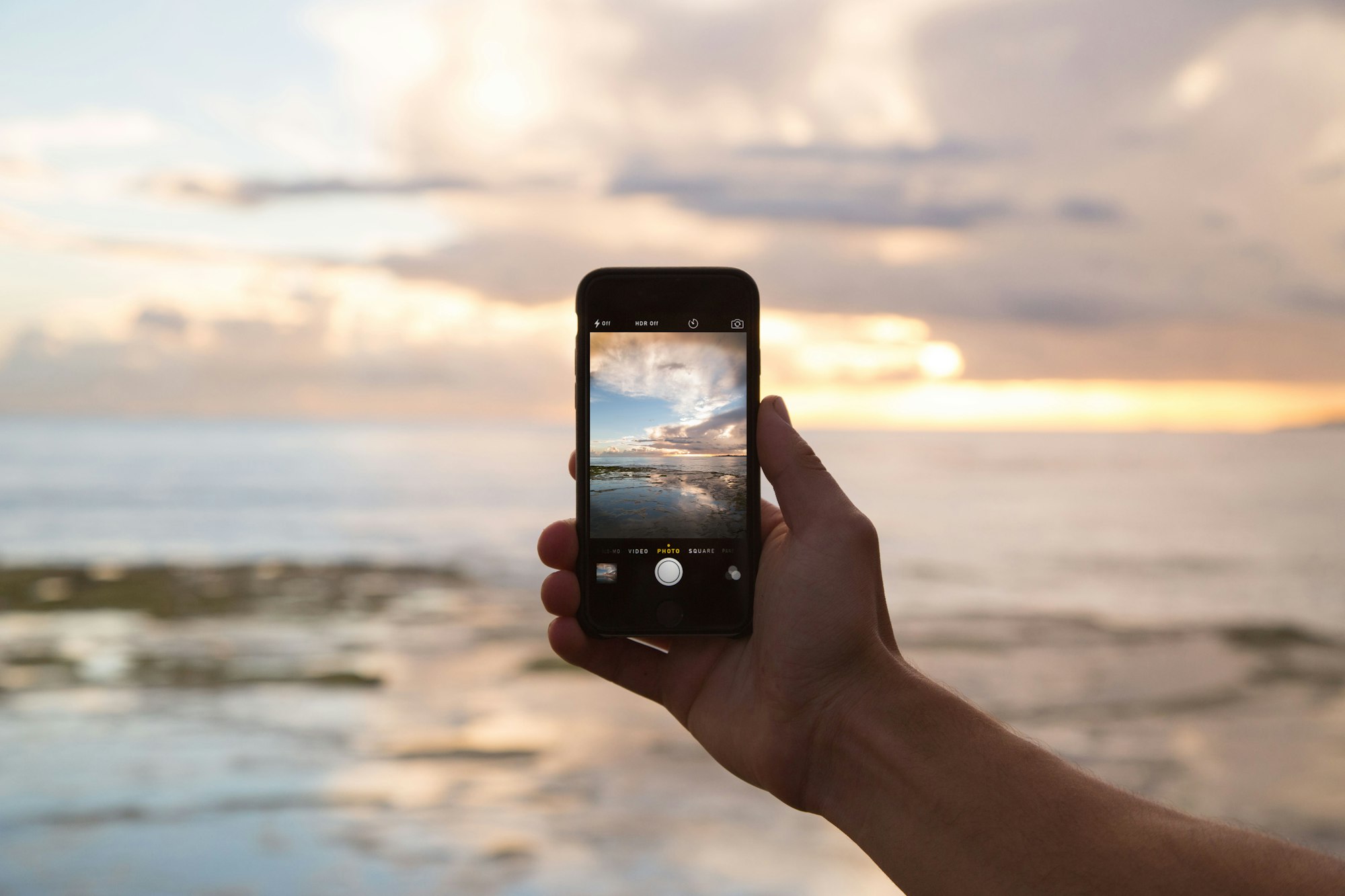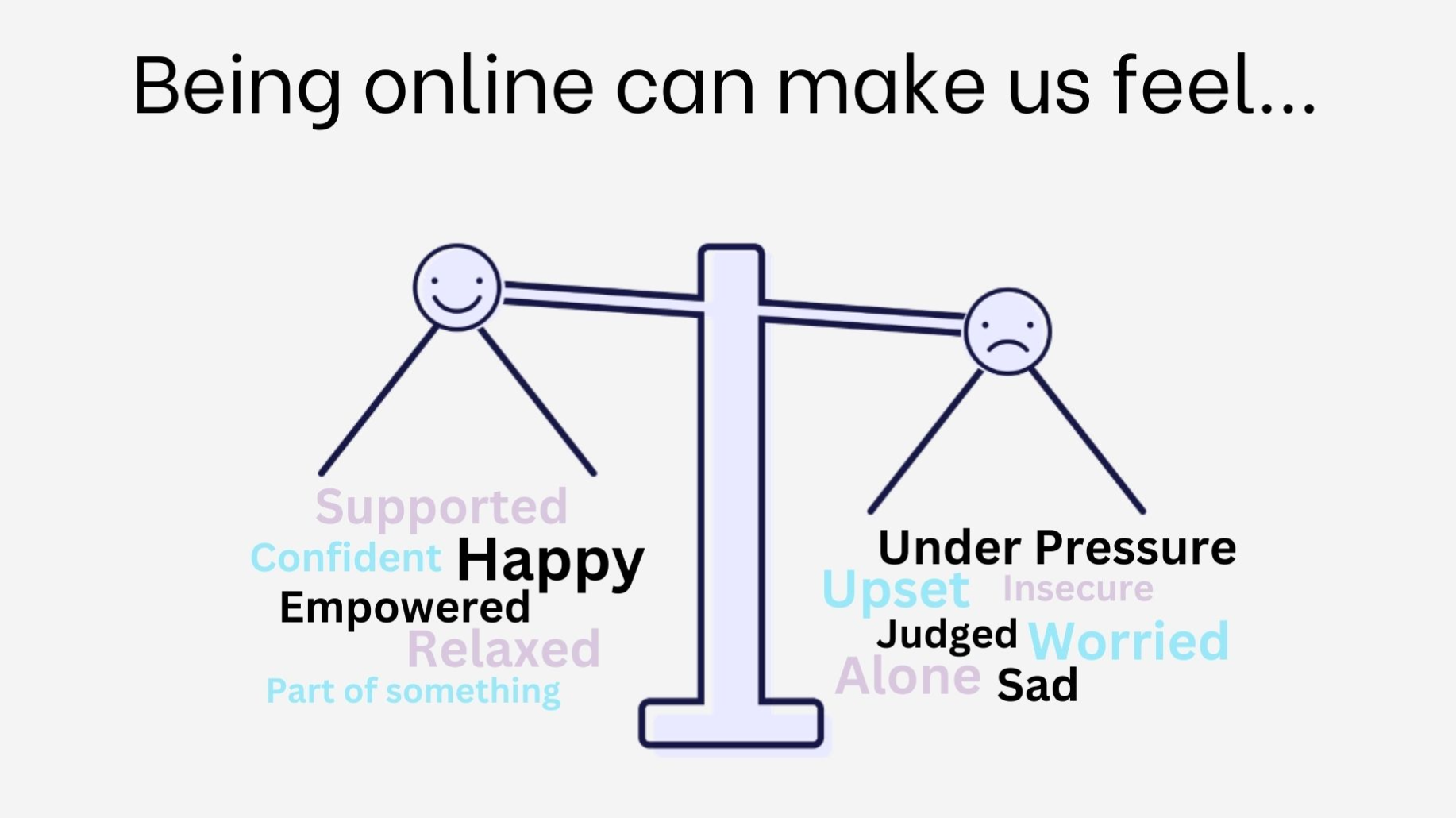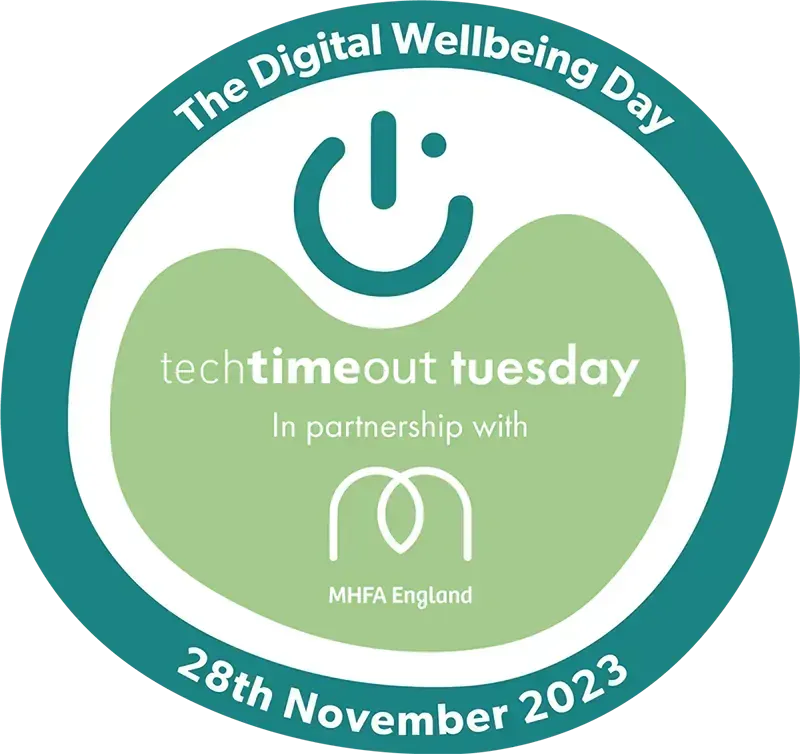Digital Wellbeing

Digital wellbeing may be a phrase that you haven't heard of before but you will definitely be aware of the impacts that technology and digital media are having on the world, both good and bad.
There are so many positives to the digital sphere, it allows us to catch up with family on the other side of the world, to be entertained by Disney+ and netflix, to learn new things and seek out new opportunities. For some, technology can make the world more accessible or allow them to find communities where they feel a sense of belonging. For adults and young people the online world is full of positives and opportunities. On the flip side, we have online bullying, gaming addictions, negative health impacts, living through our screens and fake news to name a few of the not so great elements.

So what is digital wellbeing? Digital wellbeing considers the impact of technologies and digital services on people's mental, physical and emotional health. Like other areas of our wellbeing it is important to be aware of their impacts on our lives and how we can look after them.
Conversations around digital wellbeing are crucial now more than ever. The digital and online world is part of our societal fabric and it is changing and evolving faster than ever. I am not sure about anyone else but I cannot keep up with AI developments, although it was incredible to hear this week about how AI was used for liver cancer treatments at Addenbrookes hospital. For young people and adults, so much of the world is online. It is important for us to develop the skills to minimise the negative impacts of technology and digital media on our wellbeing.
Technology, social and digital media can make us feel a variety of emotions, they can help us to feel supported, connected and hopeful but at times we can feel alone, insecure, sad or under pressure when engaging and interacting. When we feel like we are starting to feel more negative than positive and our scales are tipping over, we can use our digital resilience. Digital resilience is the tools that we can use to prevent, respond and recover to digital challenges.

Some ways that we can be digitally resilient are:
Going offline- sometimes taking a digital break and unplugging can help us to reconnect with people, nature, ourselves and the world. Maybe try an offline activity, like reading a book instead of scrolling instagram, seeing a friend for a coffee instead of a facetime or have a games night instead of watching your favourite series. Try take some intentional time away from your devices.
Being mindful about how digital media makes your feel - simply being aware of the feelings that we have when we engage with technology is part of digital resilience. It allows us to notice when we need to make changes. Perhaps reflect on your ‘digital day’, when you use technology in the day and how it makes you feel. For example if you check social media first thing in the morning and it makes you feel unmotivated or frustrated then maybe switch your routine around.
Block/ report - all sites have these functions and they are there to keep ourselves and others safe. If you are seeing content that is not appropriate, unkind or offensive you can report it. Similarly if you are following accounts that are bringing you down or making you feel uncomfortable you can block them or unfollow them. (On some platforms like Facebook you can even unfollow someone while remaining their friend so you just don’t see what they post.)
Monitor screen time before bed - screen time can impact us physically in many ways including strain on our eyes, posture and sleep. Using screens before bed can impact the natural production of melatonin which is important to help us get to sleep. Screens can also reduce how long we spend in REM sleep which is a crucial sleep stage for effective cognitive functioning. Before bed, perhaps try reading a book, having a bath or doing some mindfulness.
Spread some positivity online - there are so many ways to do this, it could be following and sharing uplifting content, posting a dad joke or a motivating quote. Use social media to spread some joy into people’s feeds and into your day!
How much are your devices impacting your wellbeing? What ways could you be digitally resilient?
Coming up later in November is #techtimeouttuesday, a day aiming to raise awareness of digital wellbeing and focus on some screen-free fun! Check out this link to find out more and take the pledge!

Never miss a Phase blog post - subscribe here
